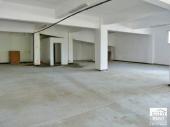|
| Factsheet: Buying a home |
|
|
 Buying a home can be a long and complex process, but typically it involves going through these steps:
Buying a home can be a long and complex process, but typically it involves going through these steps:
Find out how much you can borrow
Call a mortgage broker to get an idea of how much you can borrow. He or she will be able to search the market for the best available deal and to help you maximise your borrowing power. You will need to give details of how much you earn and all of the things that you spend money on each month.
When working out how much you can afford to put down as a deposit, remember to keep some savings aside to meet stamp duty and other fees, and to furnish your new home. Get information about the different mortgages on offer, and start thinking about whether you want to go for a fixed or variable-rate deal.
Define your criteria
Decide what you are looking for in a property – whether you need parking and a garden, how many bedrooms you need, if it’s a flat, whether you want it to be freehold or leasehold – and pick an area on which to focus your search.
Consider what you want out of the location: are local schools, transport links and shops important to you? How long are you planning to live in the property for? Beginning the search
Start scanning the internet and local newspapers and register with estate agents - some properties sell before they are advertised online, so it is worth being on the agents’ books. If you see a property you want to look at, call the agent and arrange a viewing.Out and about
Visit some properties. You are unlikely to find the home you want straight away, so don’t despair and don’t be tempted into edging over your budget if you don’t like the first place you look at. This is probably going to be your biggest financial outlay, so it is worth waiting until you find the right place.
Don’t be shy about asking questions when you are looking around a property, or afterwards. The estate agent should be able to provide you with basic details about the property, and to pass on any other queries to the people who are selling.
Making an offer
When you find somewhere you like, make an offer. Before you do so, try to glean as much information from the estate agent as possible. Ask how long it’s been on the market and if the seller wants a quick sale. Some websites have details of when a property was first listed, although this won’t tell you if the seller has switched to a new agent.
Many buyers initially make an offer below the asking price, and often this is accepted. You may want to start low and negotiate with the agent to find a price that satisfies both parties. But if you want to be sure you get the property you like – and you think it is worth the asking price – you may want to offer the full amount straight away.
Acceptance
If your offer is accepted, ask the estate agent to take the property off the market. You now need to instruct a solicitor. If you need to find a solicitor, ask for a few quotes and follow up personal recommendations.
Paperwork
Instruct your solicitor to start working on a contract. They will also send the seller a list of questions to answer, including a questionnaire asking which fixtures and fittings they intend to leave when they move out.
Exchange of contracts
After your solicitor or conveyancer has completed all the necessary checks you’ll be asked to sign a contract legally committing you to the purchase. At this point you will need to pay a deposit for the property – usually at least 5% of the price but more typically 10%. At this point you will usually agree a date to complete the sale.
Completion
This is when the property finally becomes yours. When your solicitor tells you that the sale is completed you can pick the keys up from the estate agent. This will probably be the day that you move in, unless you are having work done in advance. It is likely to be a stressful day, even if everything goes according to plan, but should feel worthwhile after your first night in your new home. |
| Monday, Nov 07, 2016 |
|
|
|
|
| » RENTALS |

|
|
|
| Commercial |
€ 770 |
|
| Location: |
Veliko Tarnovo |
|
|

|